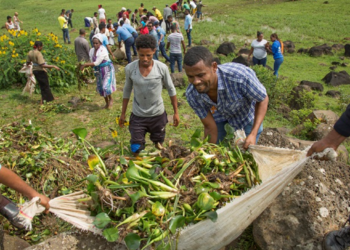Aquaculture boom in Turkey.+800% in the last twenty years – Turkish aquaculture is running fast, pushing the fish sector to unprecedented levels. In just two decades, fish production in Turkey has risen from 61,163 tonnes to over 547,500 tonnes in 2023. An increase of almost 800% that has rewritten the rules of the game in the Mediterranean, turning Turkey into a strategic hub of European and international aquaculture.
The sector is now worth around EUR 1.7 billion, surpassing traditional fishing and becoming the country’s main source of seafood products.
Driving this growth are specific factors: advanced technology, incentive policies and steadily increasing international demand. According to a recent review published in Reviews in Aquaculture, Turkey’s success is the result of targeted investments and forward-looking strategies. It is not just a question of numbers, but of industrial vision.
The three key species – rainbow trout, bass and bream – still account for 97% of production, but the scenario is in full swing. The focus is on expanding supply with breeding projects for Black Sea turbot and bluefin tuna, while the real emerging star is Turkish trout, also known as Turkish salmon, bred in the cold waters of the Black Sea. In 2023 alone, its production grew by 31%, conquering increasingly demanding markets.
There is no shortage of technological innovations. Deep-water offshore plants and recirculation systems (RAS) are being developed, providing optimal conditions and more controlled production. Artificial intelligence and machine learning are making their way into fish farms: they optimise fish feed, monitor water quality and improve animal welfare, increasing efficiency and reducing operating costs.
But the race is not without obstacles. Climate change is also making itself felt here: warming sea waters are putting some sensitive species at risk. The answer?
Cooling systems installed in sea cages in the Black Sea that stabilise the temperature and safeguard stocks.
Sustainability is a priority. Dependence on imported fishmeal and fish oil has prompted the search for local and more environmentally friendly alternatives. Feeds based on insect meal and by-products of the fishing industry are being experimented with to reduce environmental impact. Moreover, the short supply chain is emerging as a winning strategy: bringing feed factories closer to production sites lowers transport emissions and contributes to greener aquaculture management.
Despite impressive results on the export front, domestic fish consumption in Turkey remains surprisingly low: just 7.2 kg per capita against a much higher world average. To change course, the government and private producers are relying heavily on educational and promotional campaigns aimed at young people, explaining the nutritional value of fish and the opportunities offered by a more balanced diet.
Aquaculture in Turkey is not just a production success story, but the emblem of a sector that looks ahead, faces environmental challenges and innovates with courage. A model that the European fishing industry is watching with great attention and that can set an example for the sustainable future of aquaculture in the Mediterranean.
Aquaculture boom in Turkey.+800% in the last 20 years









